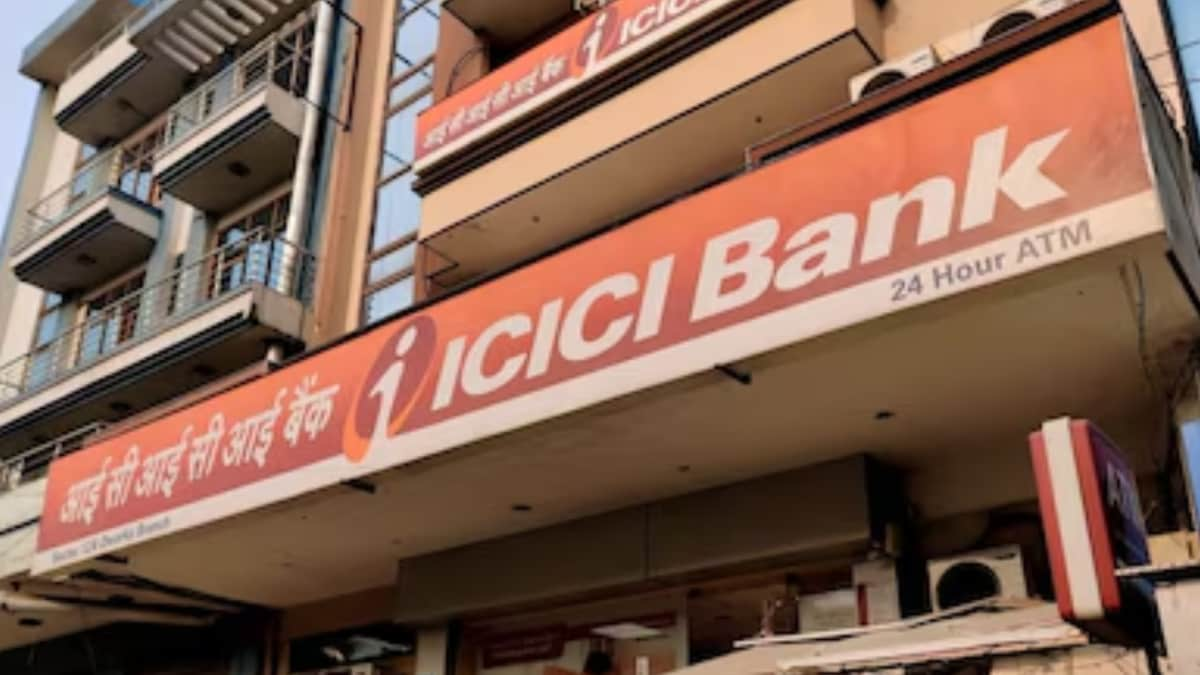Politics
Indian police arrest owner of drug company linked to deaths of 21 children
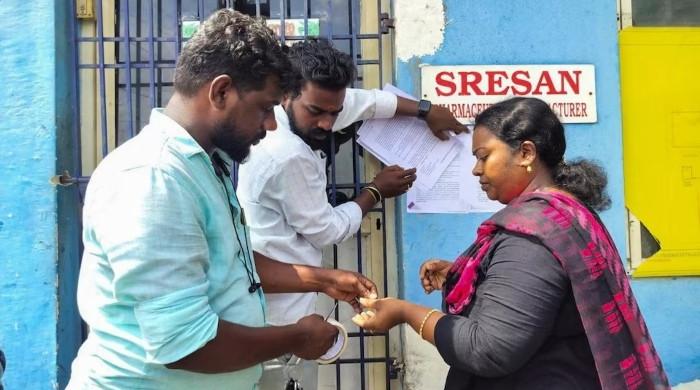
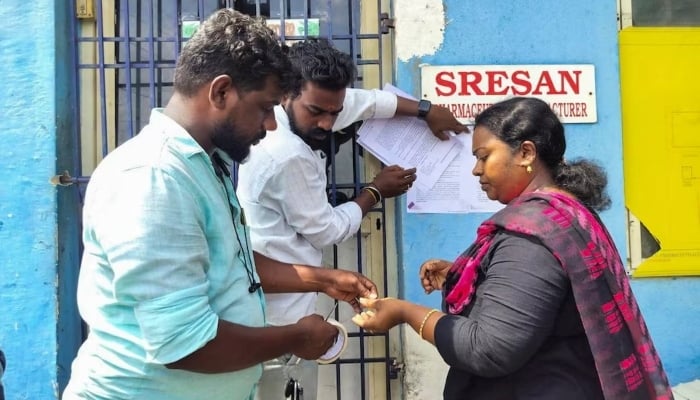
CHENNAI: Indian police have arrested the owner of a pharmaceutical company after a cough syrup made at his plant was linked to the deaths of at least 21 children, officials said on Thursday.
Most of the children, all aged under five, died in Madhya Pradesh state over the past month after they were prescribed the syrup, which was contaminated with a deadly toxin.
Cough syrups manufactured in India have come under global scrutiny in recent years, with deaths linked to their consumption reported in several countries, damaging its reputation as the third-largest producer of drugs and pharmaceuticals by volume.
G Ranganathan, 75, was arrested early on Thursday morning at his home in Chennai by police from the city and from Madhya Pradesh.
He was charged with culpable homicide not amounting to murder and adulteration of drugs, police sources told AFP, and Indian media reported.
The cough syrup, sold under the brand name Coldrif, was manufactured by Sresan Pharma at a unit in the southern state of Tamil Nadu.
The Indian health ministry said on Saturday that tests on samples showed they were contaminated with diethylene glycol (DEG), a toxic substance used in industrial solvents that can be fatal even if ingested in small amounts.
Madhya Pradesh and several other states have banned the product.
Indian media reports said the World Health Organisation had sought clarification from Indian officials about whether the toxic cough syrup had been exported to other countries.
More than 70 children died in Gambia from acute kidney failure after consuming a cough syrup imported from India in 2022.
In Uzbekistan, 68 children died between 2022 and 2023 after consuming another contaminated syrup produced in India.
Politics
Trump purchases $100 million worth of Netflix, Warner Bros bonds
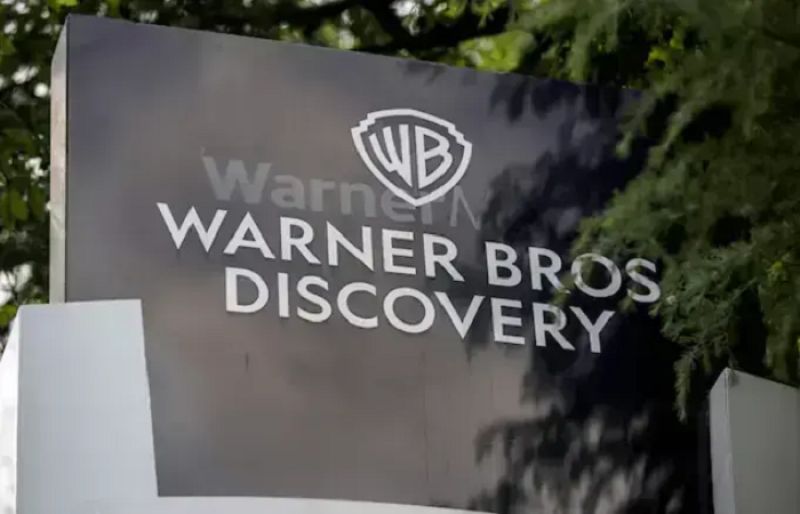

US President Donald Trump purchased about $100 million in municipal and corporate bonds from mid-November to late December, his latest disclosures showed, including up to $2 million in Netflix and Warner Bros Discovery bonds just weeks after the companies announced their merger.
Financial disclosures posted on Thursday and Friday showed the majority of Trump’s purchases were municipal bonds from cities, local school districts, utilities and hospitals.
But he also bought bonds from companies including Boeing, Occidental Petroleum and General Motors.
The investments were the latest reported assets added to Trump’s expanding portfolio while he is in office.
It includes holdings in sectors that benefit from his policies, raising questions about conflicts of interest.
For example, Trump said in December that he would have a say in whether Netflix can proceed with its proposed $83 billion acquisition of Warner Bros Discovery, which faces a rival bid from Paramount Skydance.
Any deal to acquire Warner Bros will need regulatory approval.
A White House official, who spoke on the condition of anonymity, said on Friday that Trump’s stock and bond portfolio is independently managed by third-party financial institutions and neither Trump nor any member of his family has any ability to direct, influence or provide input regarding how the portfolio is invested.
Like many wealthy individuals, Trump regularly buys bonds as part of his investment portfolio.
He previously disclosed at least $82 million in bond purchases from late August to early October.
Politics
Trump says Pakistani PM’s ‘saving 10 million lives’ remark is an honour
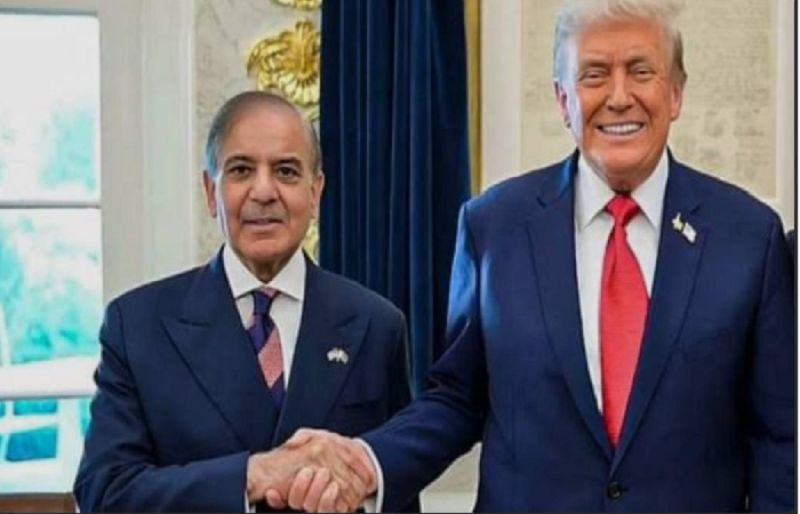
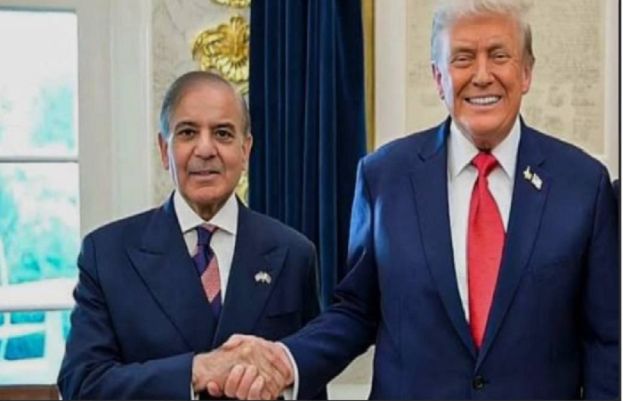
US President Donald Trump has reiterated his claim of having stopped a war between Pakistan and India, while also saying that Pakistan Prime Minister Shehbaz Sharif thanked him for saving at least 10 million lives.
He made the remarks at the renaming of Southern Boulevard to Donald J Trump Boulevard in Washington on Friday.
“In a year, we made eight peace deals and ended the conflict in Gaza. We have peace in the Middle East…We stopped India and Pakistan from fighting, two nuclear nations…The Pakistani Prime Minister said Donald Trump saved at least 10 million people, and it was amazing,” he said.
The US president further recalled that the Pakistani prime minister’s remarks were an honour for him.
Trump cited his administration’s foreign policy record and repeated assertions of brokering peace between the two nuclear-armed neighbours.
Trump has made similar claims multiple times since May 10 last year, arguing that US pressure helped defuse tensions between India and Pakistan.
Politics
Saudi King Salman leaves hospital after medical tests
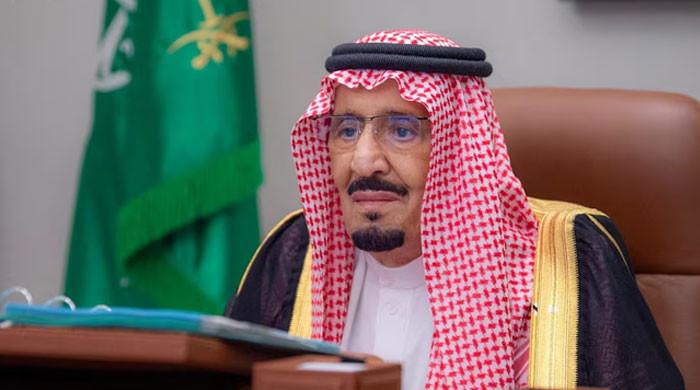
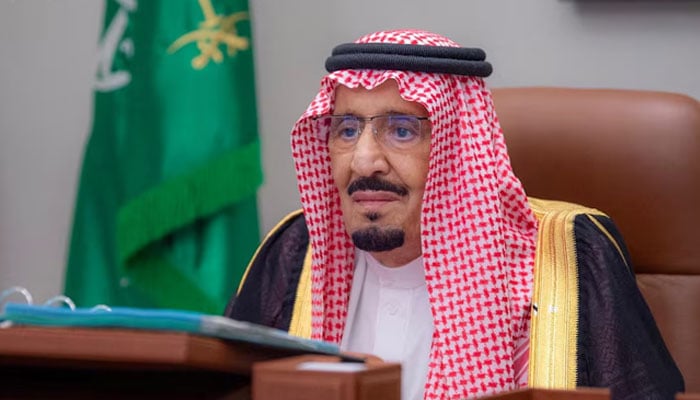
Saudi Arabia’s 90-year-old King Salman was discharged from hospital after undergoing medical tests in the capital Riyadh, the kingdom’s Royal Court said on Friday, adding that the results were “reassuring”.
The monarch “left the King Faisal Specialist Hospital in Riyadh today (Friday) after undergoing medical tests that proved reassuring”, the royal court said in a statement shared on state media, having announced his admission earlier in the day.
Saudi Arabia, the world’s biggest crude oil exporter, has for years sought to quell speculation over King Salman’s health.
He has been on the throne since 2015, though his son Mohammed bin Salman was named crown prince in 2017 and acts as de facto ruler.
The monarch’s well-being is rarely discussed, but he has been admitted for surgery and tests on multiple occasions in recent years.
In 2024, the Royal Court said he suffered from lung infections, which he recovered from.
He was hospitalised in May 2022, when he went in for a colonoscopy and stayed for just over a week for other tests and “some time to rest”, the official Saudi Press Agency reported at the time.
He was also admitted to hospital in March 2022 to undergo what state media described as “successful medical tests” and to change the battery of his pacemaker.
In 2020, he underwent surgery to remove his gall bladder.
-

 Tech4 days ago
Tech4 days agoNew Proposed Legislation Would Let Self-Driving Cars Operate in New York State
-

 Sports6 days ago
Sports6 days agoClock is ticking for Frank at Spurs, with dwindling evidence he deserves extra time
-
Sports1 week ago
Commanders go young, promote David Blough to be offensive coordinator
-

 Entertainment4 days ago
Entertainment4 days agoX (formerly Twitter) recovers after brief global outage affects thousands
-

 Fashion6 days ago
Fashion6 days agoSouth India cotton yarn gains but market unease over US tariff fears
-

 Fashion6 days ago
Fashion6 days agoChina’s central bank conducts $157-bn outright reverse repo operation
-

 Business1 week ago
Business1 week agoSoftBank reduces Ola Electric stake to 13.5% from 15.6% – The Times of India
-

 Sports6 days ago
Sports6 days agoUS figure skating power couple makes history with record breaking seventh national championship



